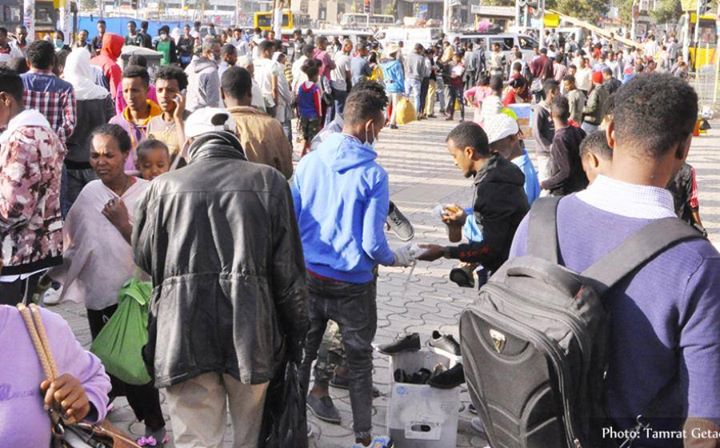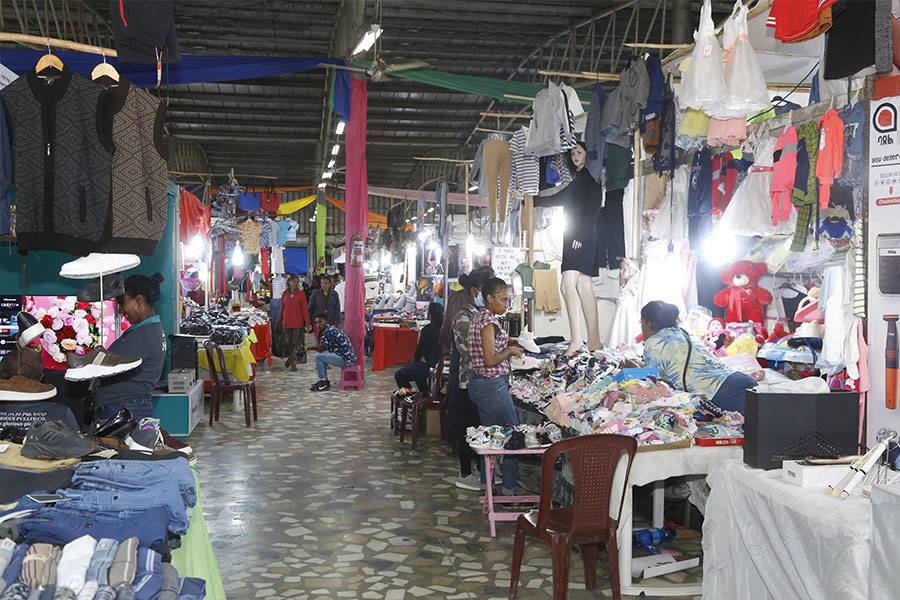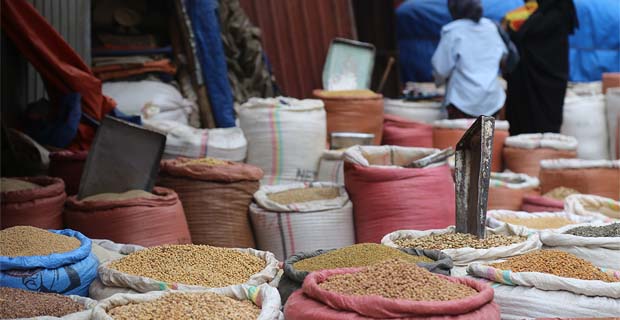
Fortune News | Jul 22,2023
Oct 1 , 2022
By Gautam Nair , Federico Sturzenegger
During the “Great Moderation” that preceded the COVID-19 pandemic, years of low inflation led to the growth of sovereign debt issued at fixed interest rates and long maturities. And now, two years of unexpected US inflation have effectively diluted these obligations, in America and elsewhere, write Gautam Nair, assistant professor of public policy at Harvard University’s John F. Kennedy School of Government, and Federico Sturzenegger, former president of Argentina’s Central Bank.
As developing countries confront a new era of elevated inflation, rising interest rates, a stronger dollar, and capital outflows, some governments stand to benefit from a little-noticed bonanza. During the “Great Moderation” that preceded the COVID-19 pandemic, years of low inflation led to the growth of sovereign debt issued at fixed interest rates and long maturities. Now, two years of unexpected inflation in the United States have effectively diluted this debt.
According to our calculations, the US government’s own inflation windfall is substantial. In October 2019, the International Monetary Fund’s (WEF) World Economic Outlook forecast that US inflation would be 2.4pc in 2021 and 2.3pc in 2022. But US inflation clocked in at 4.7pc in 2021, and the IMF now expects a rate of 7.7pc this year. The size of what we call the “unexpected inflation shock” over 2021-22 is thus 7.7pc (the sum of the actual inflation rates minus the projected rates). Under such conditions, the biggest winner will be the largest issuer of dollar debt: Uncle Sam.
At the end of 2020, the US government’s long-term fixed-rate debt was nearly 21 trillion dollars, and the US monetary base (which includes the amount of currency in circulation) was about 5.2 trillion dollars. While the full brunt of 2021-22 inflation (12.4pc) falls on the monetary base, its unexpected component (7.7pc) reduces the value of the US government’s debt, because debt holders are compensated with interest for expected inflation. The US Treasury thus nets an enormous two trillion dollar reduction – nearly 11pc of GDP – in the real value of its 26 trillion dollar in inflation-exposed liabilities. Netting out the US Federal Reserve’s holdings of long-term Treasuries brings the figure down to nine percent of GDP.
According to conventional wisdom, it is primarily developing countries that resort to inflating away their debts. But the current period of high US inflation serves as a reminder that developed countries have also often relied on unconventional strategies like the “inflation tax” to deal with their liabilities.
Long-term US Treasury securities totaling about 6.6 trillion dollars are held by foreign entities such as central banks and pension funds, and the Fed estimates that nearly a trillion dollar of cash is also held by non-residents. By diminishing the real value of these holdings, high US inflation has essentially transferred 568 billion dollars to the US government from non-residents, meaning that about one-quarter of the US inflation tax over the last two years has been paid abroad.
Two of the biggest holders of long-term US Treasuries are Japan (1.2 trillion dollars) and China (862 billion dollars), which together have paid for nearly one-third of the gains to the US. Aside from China and large cash holders like Argentina (which is losing an amount equal to three percent of GDP, owing to the reduced value of dollar cash held by residents) most of the biggest inflation-tax payers abroad are developed economies.
But America is not the only winner. Many emerging markets are also benefiting, because a significant chunk of their debt is issued in dollars. Since foreign investors have been unwilling to bear the risk that governments will try to dilute the real value of their obligations by printing money and sparking inflation, many governments have tied their own hands by issuing dollar-denominated debt.
Bondholders were thus able to assure themselves that inflation in the domestic currency would not adversely affect the value of their holdings – or so they thought. The theory of relative purchasing power parity tells us that all countries’ nominal GDP, when measured in US dollars, will eventually grow at the rate of US inflation. High inflation in the US thus means that the real burden of dollar-denominated debt will decline, netting a substantial gain to other sovereigns.
Excluding the US, total outstanding dollar-denominated long-term fixed-rate debt in 2021 was 1.3 trillion dollars, according to the Bank for International Settlements. Thus, to obtain a conservative estimate of the size of the gain to non-US governments (conservative because US inflation might exceed forecasts or persist beyond this year), we can apply 7.7pc of unexpected inflation to the 1.3 trillion dollars, implying savings of roughly 100 billion dollars. Owing to the dilution of their debt, Turkey, Indonesia, Mexico, Saudi Arabia, and Brazil each effectively get a one-time transfer that exceeds four billion dollars, at the expense of their creditors. Other big winners (in relative terms) include developing countries like Lebanon, Venezuela, Jamaica, and Mongolia, whose governments similarly benefit to the tune of two percent of GDP or more.
To be sure, these astronomical sums will cause creditors to demand higher rates of interest on new debt issues. But higher interest rates do not affect the plummeting real value of the existing stock of long-term debt. For some countries, the effect of this transfer may also take time to be felt, because the dollar has recently strengthened relative to other currencies.
But the recent inflation shock in the US is a monetary shock, implying that nominal exchange rates will eventually move with the inflation differential across countries (in line with the theory of relative purchasing power parity). Once they do, the GDP of other countries, when measured in dollars, will also grow at the US inflation rate, ensuring that the real burden of sovereign debt falls.
Commentaries on the perils facing developing countries tend to focus on the risks posed by higher interest rates and depreciating currencies. For governments, however, US inflation also comes with a silver lining: bondholders pay the price while inflation whittles away a towering stock of sovereign debt.
PUBLISHED ON
Oct 01,2022 [ VOL
23 , NO
1170]

Fortune News | Jul 22,2023

Fortune News | Jun 10,2021

Covid-19 | Apr 03,2020

Radar | May 18,2024

View From Arada | Oct 12,2024

Agenda | Apr 16,2022

Fortune News | Oct 23,2021

Fortune News | Oct 03,2020

Viewpoints | Oct 08,2022

Radar | Oct 17,2020

Photo Gallery | 180022 Views | May 06,2019

Photo Gallery | 170216 Views | Apr 26,2019

Photo Gallery | 161221 Views | Oct 06,2021

My Opinion | 137242 Views | Aug 14,2021

Dec 22 , 2024 . By TIZITA SHEWAFERAW
Charged with transforming colossal state-owned enterprises into modern and competitiv...

Aug 18 , 2024 . By AKSAH ITALO
Although predictable Yonas Zerihun's job in the ride-hailing service is not immune to...

Jul 28 , 2024 . By TIZITA SHEWAFERAW
Unhabitual, perhaps too many, Samuel Gebreyohannes, 38, used to occasionally enjoy a couple of beers at breakfast. However, he recently swit...

Jul 13 , 2024 . By AKSAH ITALO
Investors who rely on tractors, trucks, and field vehicles for commuting, transporting commodities, and f...

Nov 1 , 2025
The National Bank of Ethiopia (NBE) issued a statement two weeks ago that appeared to...

Oct 25 , 2025
The regulatory machinery is on overdrive. In only two years, no fewer than 35 new pro...

Oct 18 , 2025
The political establishment, notably the ruling party and its top brass, has become p...

Oct 11 , 2025
Ladislas Farago, a roving Associated Press (AP) correspondent, arrived in Ethiopia in...

Nov 2 , 2025
The National Bank of Ethiopia (NBE) has scrapped the credit-growth ceiling that had s...

Nov 2 , 2025 . By SURAFEL MULUGETA
The burgeoning data mining industry is struggling with mounting concerns following th...

Nov 2 , 2025 . By YITBAREK GETACHEW
Berhan Bank has chosen a different route in its pursuit of a new headquarters, opting for a transitional building instea...

Nov 2 , 2025 . By BEZAWIT HULUAGER
Nib International Bank S.C. has found itself at the epicentre of a severe governance...